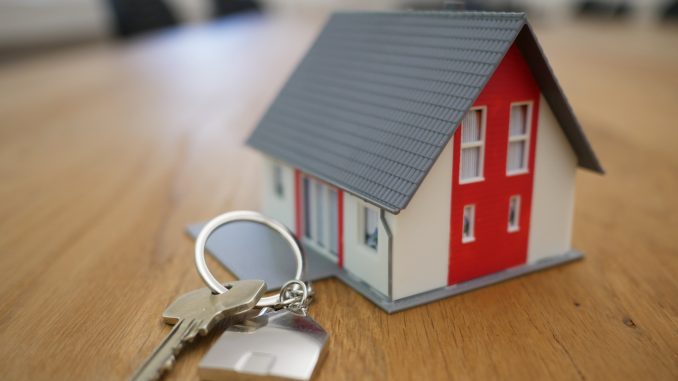
You’ve decided to take the plunge – you’re ready to become a homeowner! Congratulations! This is an exciting step in your life, but it can also be a little daunting. There are a lot of things to think about when buying a home, and it’s important to know what you’re getting into. This blog post will discuss everything you need to know about buying your first home, such as how to get started and what to look for, as well as more specific information like financing and mortgages.
Know what you can afford.
The first and most important step when buying a home is knowing what you can afford. Before you start your search, know how much money you have to work with (including any savings or gifts you may receive) and what kind of mortgage payment you can comfortably make. It’s important to be realistic – if the payments on a particular property stretch your budget too thin, it’s probably not the right one for you. Speak with a qualified real estate agent or financial advisor who can help you determine a realistic budget and understand all of the associated costs that come along with buying a home.
Being able to afford a small down payment is important, too. Many buyers opt to put down as much as they can in order to minimize the amount of money that they have to borrow. As long as you’re able to stay up-to-date on your payments, paying a larger down payment can help you get a better interest rate and lower overall costs on your loan.
Find an experienced real estate agent.
Although it may be tempting to go through the home-buying process alone, having an experienced real estate agent on your side is invaluable. A good realtor will not only know about homes for sale in their area but also what homes are worth and how you should approach negotiations with sellers. They can help guide you through each step of the process and make sure that you get a fair deal on your home purchase.
Having an experienced real estate agent by your side can also help you stay organized throughout the entire process. They’ll be able to track deadlines and paperwork for you, which is especially useful if you’re juggling multiple properties at once or just don’t know the ins and outs of the home-buying process.
Understand the different types of mortgages available.
When it comes to financing your new home, there are several options to consider. Fixed-rate mortgages come with an interest rate and payment amount that stay the same for the duration of the loan, while adjustable-rate mortgages have rates that can fluctuate over time according to market conditions. It’s important to understand each type of loan before making a decision so you can determine which one is right for you. Additionally, some lenders may offer special programs such as first-time buyer incentives or down payment assistance, so be sure to inquire about anything that could help bring down the cost of your loan.
You can also apply for certain loan programs which offer additional benefits such as lower interest rates and down payments. Speak with your lender to learn more about the different types of mortgage products available and how they fit into your financial situation.
Be prepared for closing costs.
Closing costs are any fees associated with the purchase of a home that occurs when contracts are finalized or after the transaction is complete, such as title insurance and inspection fees. They can add up quickly, so it’s important to be prepared for them when you look at homes. Most lenders will provide an estimate of what closing costs will total, so make sure you get one before signing off on any purchases. Additionally, some first-time buyers may be able to take advantage of special programs that can help cover some of these costs.
Look for your dream home.
You’ve already done a lot of work in order to get ready for the home-buying process, so now it’s time to start looking for your dream home. Make sure you look at properties that fit within your budget and speak with your real estate agent about which homes might be a good fit for you. Look at both new construction and existing homes and make sure that any potential property meets all of your needs.
Be sure to take your time when looking for a home. You will spend a significant amount of time and money on the purchase, so make sure it’s the one you want. Once you find the perfect home, be prepared to make an offer that is within your budget and terms that are agreeable to the seller.
Get ready to move
Via Unsplash
Moving from your old home to a new one can be a stressful experience, especially if you’ve never done it before. Start planning for the move in advance so that you can have everything taken care of by the time closing day arrives. This includes packing up your belongings, arranging for movers, and transferring utilities.
Be sure to stay on a budget as you plan your move, as unexpected costs can add up quickly. Additionally, it’s important to remember that you aren’t just moving into a new home—you’re also starting a new chapter of life. Take some time to settle in and enjoy the process!
Get your credit score in order.
Your credit score is one of the most important factors in determining whether or not you will be approved for a loan and at what rate, so take steps to get it in order before you start looking for a home. Be sure to pay your bills on time and keep your debt levels low. Additionally, if you do have any issues that need to be addressed, take action quickly to fix them before applying for a loan.
Having a good credit score can significantly increase your chances of getting approved for a loan and help you get the best possible rate, so it’s important to stay on top of your credit. You can check your credit score for free on a number of websites.
Research the area.
It’s important to research the area you are considering buying in so that you can make sure it is a good fit for you and your family. Look into the local schools, crime rate, average home prices, job opportunities, public transportation options, and any other factors that are important to you. Speak with people who live in the neighborhood and get their opinions on what it is like living there. Doing your due diligence will ensure that you make an informed decision when it comes time to buy a home. The area you live in can make a huge difference in your lifestyle and quality of life, so it’s important to choose carefully.
Be prepared for the unexpected.
No matter how much you plan and prepare, there is always the chance that something will come up during the home-buying process that you weren’t expecting. Be prepared for this by having some extra funds available in case any last-minute repairs need to be made or if closing costs turn out to be higher than expected. This can save you from a lot of stress down the line, so make sure you have a cushion set aside when things don’t go as planned.
Ask for approved house plans.
When purchasing a new home, especially one that is newly constructed, it is important to ask for approved house plans from the builder. This will ensure that all of the construction meets local building codes and regulations and can also give you peace of mind in knowing that your investment is protected. Additionally, any changes or modifications you make to the home should be reviewed by an architect or engineer to make sure they are structurally sound and safe. This could potentially save you money in the long run as you won’t have to pay for costly repairs due to faulty construction down the line.
Look for defects
When viewing potential homes, it’s important to look for any existing defects or issues. Be sure to closely inspect the structure of the home and take note of anything that looks out of place. Additionally, check for signs of water damage or other structural problems that may not be immediately visible but could become costly over time if left unaddressed. If you suspect something is wrong with a house, have it inspected by an experienced professional before putting in an offer?
Go for a short mortgage.
When shopping for a mortgage, it’s important to consider the length of the loan. Generally speaking, shorter loans come with higher monthly payments but save you money in the long run as there is less interest accrued over the life of the loan. On the other hand, long-term loans have smaller payments but cost more overall due to interest. Consider your financial situation and decide which option will work best for you before committing to a mortgage.
Be patient
Buying a home can be both an exciting and stressful process. With so much to take into consideration, it’s important to be patient throughout the process and not rush into anything. Take your time when researching potential homes and neighborhoods, carefully examine all documents and contracts, and be sure to ask a lot of questions. Doing so will help ensure that you make the best decision for your situation.
Buying a home is a big decision and requires careful thought, research, and planning. It’s important to understand the ins and outs of the process before getting started so that you make an informed decision. Doing your due diligence in researching the area, asking for approved house plans, looking for defects, going for a short mortgage if possible, and being patient throughout the entire process can ensure that you have a positive experience when it comes time to buy your dream home.



